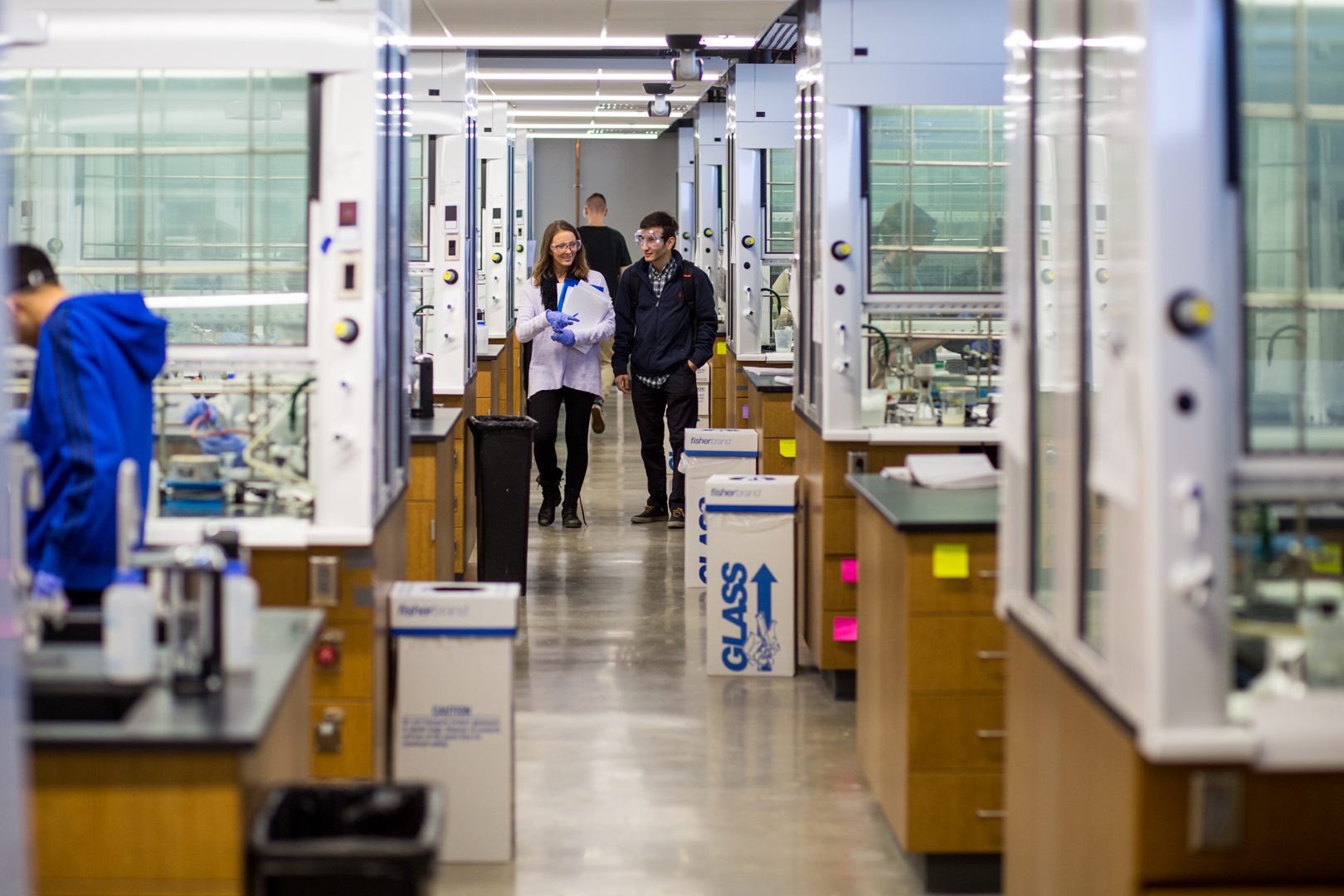Graduate Programs
Master of Science in Chemistry
Students who earn their M.S. in Chemistry receive the skills and knowledge necessary to conduct specialized research and are prepared for competitive careers in industry, business or academia.
This program is designed both for students who wish to remain in their current positions while taking classes as well as those pursuing a full-time, research-intensive path. The department has a small research mentor to graduate student ratio that facilitates close interaction between students and faculty. We currently offer both a thesis and non-thesis option for obtaining an M.S. in Chemistry.
Thesis option
Full-time students are expected to choose the thesis option, which has an emphasis on coursework and research. It requires a minimum of 31 hours of coursework in chemistry and the presentation of a thesis. With this option, students must choose a research advisor and a thesis subject. A candidate's thesis must meet all the requirements set forth by the UMKC School of Graduate Studies.
Non-thesis option
Students pursuing the non-thesis option for the Master of Science in Chemistry are expected to have an emphasis on coursework. This option requires a minimum of 31 hours of coursework.
Natural Sciences Ph.D. in Chemistry
UMKC offers a Natural Sciences Ph.D. program which takes a multidisciplinary approach to earning a doctorate.
Learn more about the Chemistry Discipline
Interdisciplinary Ph.D.
(Fall 2025 is the last term that applications will be reviewed for the interdisciplinary program.)
Students choosing to pursue an Interdisciplinary Ph.D. in Chemistry will choose an area of research that is represented by chemistry and another co-discipline and outline a course of study with their research advisory committee.
Typical co-disciplines
- Pharmaceutical sciences
- Physics
- Geosciences
- Molecular biology
- Biochemistry
Chemistry as primary discipline
By choosing chemistry as the primary discipline of study, your program will be designed with your research advisory committee to accommodate you in pursuit of a future career in either an academic, government or industrial sector. Our departmental faculty have a wide range of expertise ranging from traditional chemistry topics, such as inorganic and organic synthesis, to multidisciplinary subjects such as pharmaceutical chemistry, materials science and catalysis.
Typical requirements for chemistry as the primary discipline- At least 31 hours of didactic coursework
- At least 15 hours of dissertation research
Chemistry as co-discipline
Chemistry can be defined as the study of matter and the changes it undergoes. Undoubtedly, this definition illustrates the wide role chemistry can play in other disciplines from engineering to geosciences, and from physics to biology. Chemistry is therefore a natural fit as a co-discipline to graduate students in pursuit of the iPh.D. from various primary disciplines, such as pharmaceutical science, physics and geosciences.
The typical requirements for chemistry as the co-discipline
- Three courses (nine credit hours) at the 400-level or above in the department
- At least one course at the 5500+ level
Research Areas
- Asymmetry and chirality
- Bonding theory
- CO2 conversion into fuels
- Electrocatalysis and electrochemical kinetic
- Electrochemical synthesis
- Electrochemistry of mesoporous structure
- H2 production through photocatalysis and electrocatalysis
- Infrared and raman spectroscopy
- Inorganic biochemistry
- Interface of art and science
- Microwave shielding materials tests and evaluation
- Molecular electrochemistry
- N2 conversion into ammonia/hydrazine
- Nanomaterials synthesis and characterizations
- Organic chemistry
- Organic pollutant and metal ion removal

